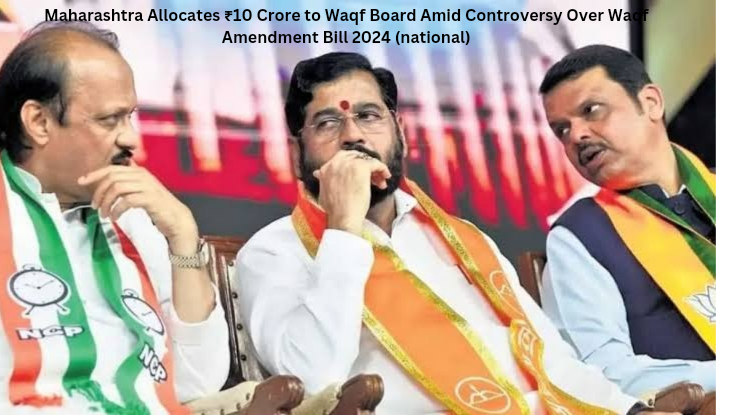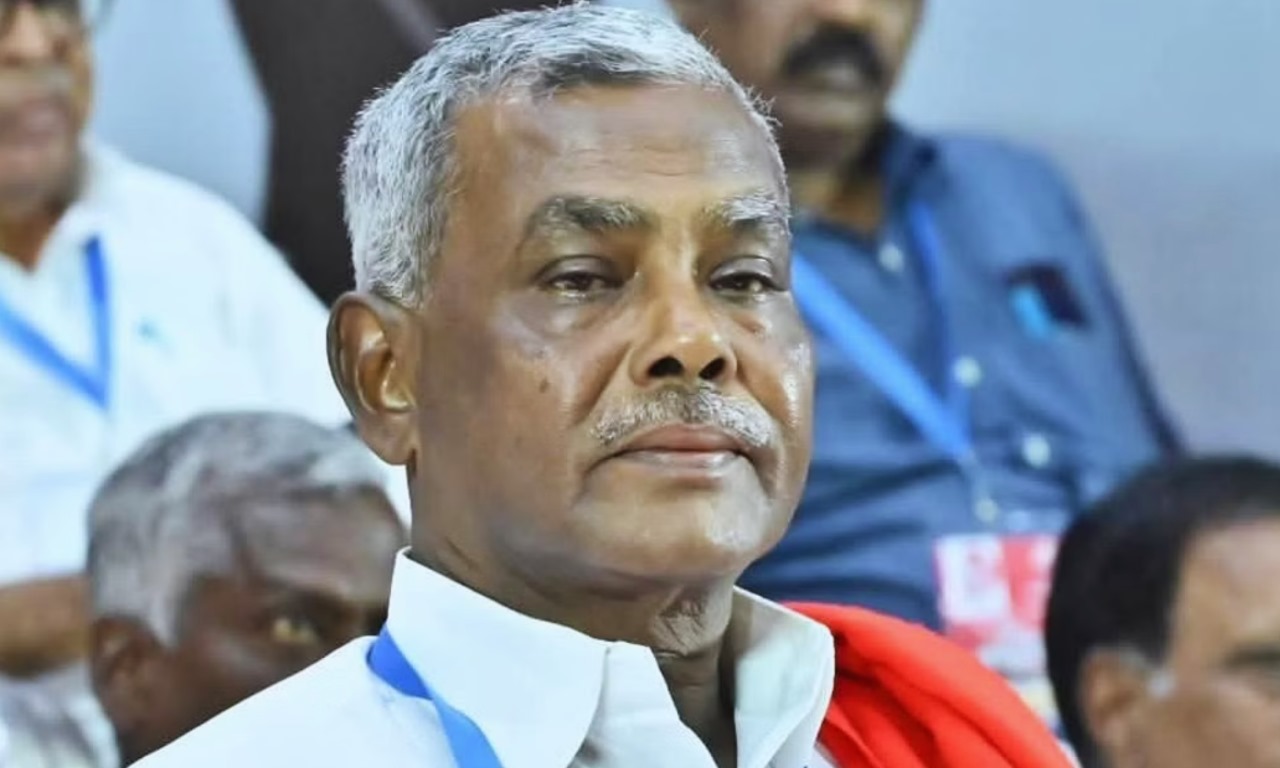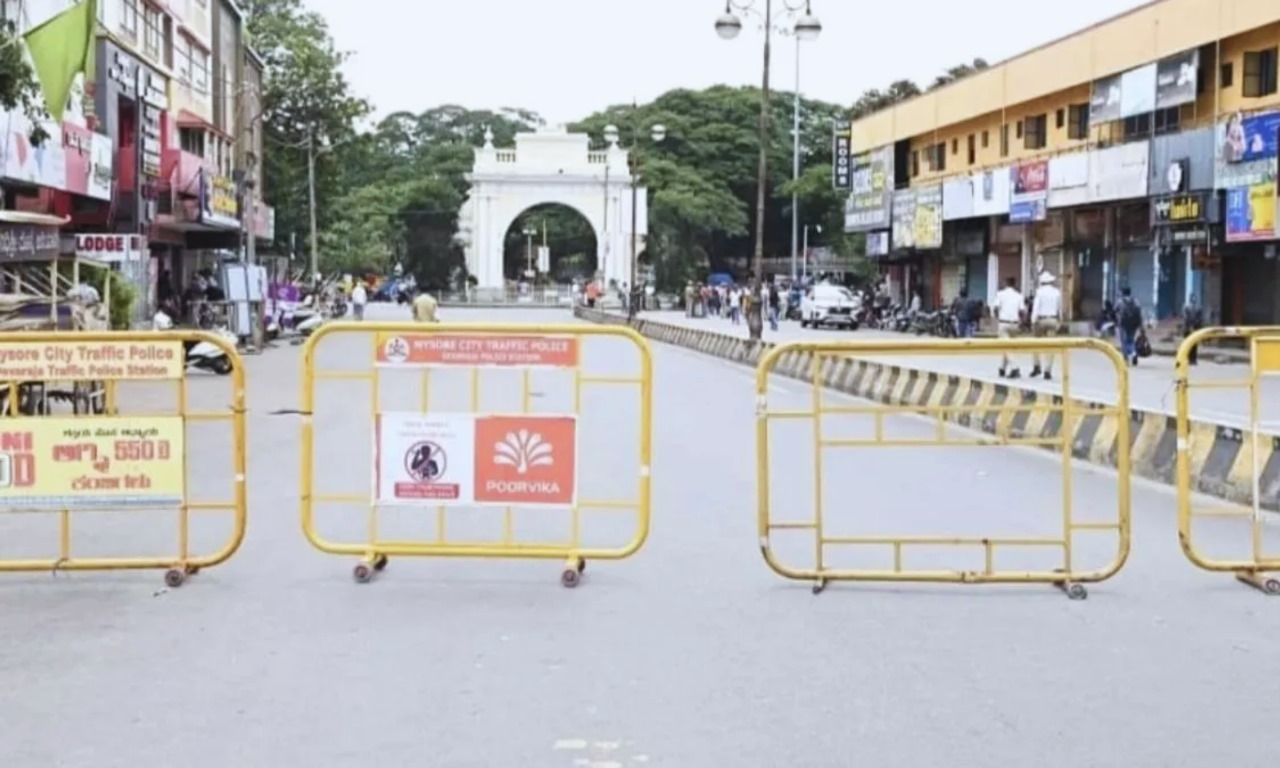Maharashtra Allocates ₹10 Crore to Waqf Board Amid Controversy Over Waqf Amendment Bill 2024

The Maharashtra government has announced a Rs 10 crore allocation to enhance the functioning and infrastructure of the state’s Waqf board.
This decision comes at a time when protests have erupted from Muslim outfits and Opposition parties over the Waqf (Amendment) Bill, 2024, which has sparked significant controversy since its introduction in August 2024.
Waqf Bill Controversy and Maharashtra’s Involvement
The Waqf (Amendment) Bill, introduced in the Lok Sabha in August 2024, has stirred intense debate. The bill proposes major changes to the management of Waqf properties and seeks to rename the Waqf Act, 1995, as the Unified Waqf Management, Empowerment, Efficiency, and Development Act.
This bill aims to streamline the operations of the Waqf Board and improve the management of Waqf properties, but it has been met with strong opposition from various Muslim organizations and political parties, who argue that it could infringe upon the rights of the community.
The Maharashtra government, through its Department of Minorities, issued a government resolution (GR) to allocate Rs 10 crore to strengthen the Maharashtra State Waqf Board.
This move follows the political developments after the recent Maharashtra state assembly elections, in which the BJP-led Mahayuti alliance secured a significant victory by winning 230 out of 288 seats.
The alliance, which includes the BJP, Eknath Shinde’s Shiv Sena, and Ajit Pawar’s NCP, raised concerns about the management of Waqf land during the election campaign.
Political Backlash and Withdrawal of Funding
Despite the initial announcement, the Rs 10 crore allocation faced strong opposition from within the BJP.
Following protests, Deputy Chief Minister Devendra Fadnavis clarified that the disbursal of funds was not appropriate while a caretaker government was in place, stating that the matter would be reviewed once a new government took charge.
On Friday, Maharashtra’s Chief Secretary Sujata Saunik confirmed that the state government had withdrawn its order to allocate the Rs 10 crore.
The controversy around the Rs 10 crore allocation is linked to the broader debate surrounding the Waqf (Amendment) Bill.
The BJP leadership criticized the GR, asserting that the funds were allocated without sufficient consultation and that the Waqf Board’s role should be reevaluated.
BJP Maharashtra took to social media to clarify the situation, stating that the GR was an administrative decision made by officers and had been canceled due to strong opposition from party leaders.
BJP leaders, including Fadnavis, reiterated that the Waqf Board has no place in the Constitution and that such financial allocations should not be made without clear constitutional backing.
Waqf Amendment Bill and the Joint Parliamentary Committee’s Role
The Waqf Amendment Bill, which aims to overhaul the management of Waqf properties, remains a contentious issue. The bill was sent to a Joint Parliamentary Committee (JPC) following opposition from several parties and organizations.
The committee has been reviewing the bill and has received significant public feedback, with over 146 organizations and nearly 95 lakh suggestions submitted for consideration.
In response to concerns over the bill’s impact on the community, the Lok Sabha recently extended the JPC’s tenure until the last day of the Budget session of Parliament next year, ensuring further discussions on the bill.
This decision came after BJP leader Jagdambika Pal moved the resolution to extend the committee’s review.
The Maharashtra government’s decision to withdraw the Rs 10 crore allocation to the Waqf Board highlights the ongoing tensions and political dynamics in the state regarding the bill and the broader issue of Waqf property management.
Impact and Future Developments
The Maharashtra government’s decision to allocate funds for the Waqf Board, followed by the withdrawal of the grant, reflects the deepening political divide on this issue.
The Maharashtra BJP’s opposition to the allocation and their subsequent actions suggest that the Waqf Board’s role in the state is set to be reexamined.
The Waqf (Amendment) Bill remains a significant political issue, and further scrutiny of its provisions will continue as the JPC reviews the suggestions and feedback from stakeholders.
As the state grapples with these challenges, it is clear that the issue of Waqf property management, along with the ongoing political tensions between the ruling parties, will remain a focal point of discussion in Maharashtra’s political landscape.








